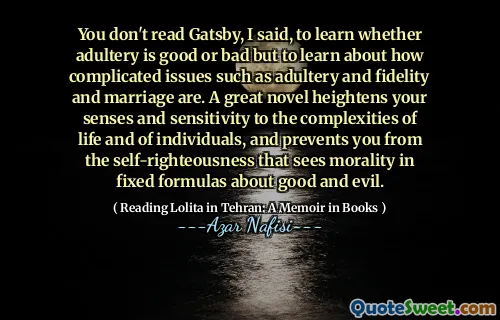
It is not accidental that the most unsympathetic characters in Austen's novels are those who are incapable of genuine dialogue with others. They rant. They lecture. They scold. This incapacity for true dialogue implies an incapacity for tolerance, self-reflection and empathy.
📖 Azar Nafisi
In Azar Nafisi's book "Reading Lolita in Tehran," the author discusses how Jane Austen portrays unsympathetic characters as those who cannot engage in authentic conversation. These characters often resort to ranting, lecturing, and scolding instead of connecting meaningfully with others. This inability to converse reflects a deeper deficiency in qualities such as tolerance, self-reflection, and empathy.
Nafisi's analysis highlights the importance of genuine dialogue in fostering understanding and compassion among individuals. When characters fail to communicate sincerely, they demonstrate a lack of emotional intelligence, which ultimately disconnects them from those around them. This theme resonates throughout Austen's work, emphasizing the value of relationship-building through meaningful interactions.







